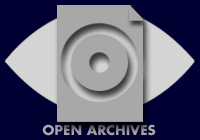Trauma in Washington Black’s Character as Seen in Esi Edugyan’s Washington Black
Reynaldi Alexander Agung(1), Nur Saktiningrum(2*)
(1) English Department, Universitas Gadjah Mada
(2) English Department, Universitas Gadjah Mada
(*) Corresponding Author
Abstract
This research analyzes the effect of trauma on Washington Black, the main character in Esi Edugyan’s Washington Black. Joy DeGruy’s theory of Post Traumatic Slave Syndrome is applied in order to understand how Black’s past experiences, trauma, and slavery affect his life. The primary data used in this research are taken from the novel Washington Black by Esi Edugyan, which includes characterization and description of the character Washington Black found in sentences and paragraphs in the novel. This research shows that Washington Black’s traumatic experiences are the main driving force of his actions which indicates the inability to separate his past from his decisions. The character Washington Black is a perfect model of someone who possesses Post Traumatic Slave Syndrome.
Keywords
Full Text:
PDFReferences
Allen, J. (2013). Mentalizing in the development and treatment of attachment trauma. Karnac Books.
Cuder-Dominguez, P. (2017). Oblique kinds of blackness in Esi Edugyan’s Half Blood Blues. Atlantis: Journal of The Spanish Association for Anglo-American Studies, 39(02), 89-104. https://doi.org/10.28914/atlantis-2017-39.2.05.
DeGruy, J. (2005). Post traumatic slave syndrome. Uptone Press.
Edugyan, Esi. (2018). Washington Black. Alfred A. Knopf.
Heidarizadeh, N. (2015). The significant role of trauma in literature and psychoanalysis. Procedia - Social and Behavioral Sciences, 192, 788-795. https://doi.org/10.1016/j.sbspro.2015.06.093.
Rushdy, A. (1999). Neo-slave narratives: studies in the social logic of literary form. Oxford University Press.
Visser, I. (2011). Trauma theory and postcolonial literary studies. Journal Of Postcolonial Writing, 47(3), 270-282. https://doi.org/10.1080/17449855.2011.569378.
Article Metrics
Refbacks
- There are currently no refbacks.
Copyright (c) 2020 Reynaldi Alexander Agung, Nur Saktiningrum

This work is licensed under a Creative Commons Attribution-ShareAlike 4.0 International License.
Lexicon Office
| English Department Faculty of Cultural Sciences, Universitas Gadjah Mada Soegondo Building, 3rd Floor, Room 306 Yogyakarta, Indonesia 55281 Telephone: +62 274 513096 Email: lexicon.fib@ugm.ac.id ISSN: 2746-2668 (Online) |
 LEXICON is licensed under a Creative Commons Attribution-ShareAlike 4.0 International License. |
Lexicon is indexed in












